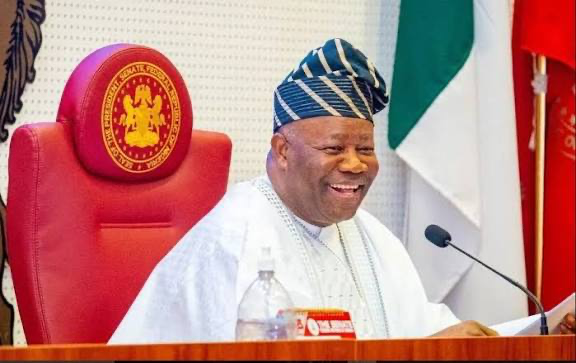After mooting a significant shift in Nigeria’s electoral calendar to reduce post-election disputes by conducting the next presidential and governorship elections in November 2026, six months before the incumbent’s tenure, the Senate was silent yesterday on the draft proposal when it passed for second reading the bill seeking to repeal the Electoral Act 2022 and enact a new Electoral Bill 2025.

The proposed Electoral Act 2025 introduces reforms aimed at strengthening Nigeria’s electoral governance, enhancing the independence of INEC, and promoting greater transparency and accountability across political and electoral processes.
The new provisions address key areas, including funding, candidate qualifications, voter registration, political party operations, campaign financing, and electoral offences.
Some major amendments include Section 3(3), which mandates the early release of INEC funds to ensure the timely preparation and execution of electoral activities.
Section 5 requires INEC to submit audited financial statements within six months after the end of each financial year; Section 10(2)(c): adds the National Identification Number (NIN) as part of the requirements for voter registration; Sections 12(1)(d) and 12(2) seek to recognise the voting rights of inmates, provided that the INEC makes the necessary arrangements for their registration and participation in elections.
Section 27(5–7) prescribes clear notice and timetables for elections, mandating that presidential and gubernatorial elections be held no later than 185 days before the expiration of the incumbent’s tenure; Section 44 introduces provisions for mandatory early voting, while Section 60(5) makes electronic transmission of results compulsory to enhance transparency and reduce electoral malpractice.
It also passed a bill seeking to amend the National Health Act, 2014, to raise the Basic Health Care Provision Fund (BHCPF) from one per cent to two per cent of the Consolidated Revenue Fund (CRF).
Meanwhile, Senior Advocate of Nigeria (SAN) and former President of the Nigerian Bar Association (NBA), Olisa Agbakoba, stated that the President Bola Tinubu administration’s target of a $1 trillion economy will be unattainable without fundamental reforms, particularly the adoption of a new Constitution.
The Senate proposal, contained in deliberations on the Electoral Act (Amendment) Bill, 2025, represents a fundamental shift in Nigeria’s electoral jurisprudence.
Sen Seriake Dickson (Bayelsa West) described the process in which aggrieved candidates must prove irregularities as “unfair and illogical,” arguing that the Commission, as the custodian of election materials and data, should bear the evidential burden.
“If our electoral system fails, democracy will exist only in name,” Dickson warned. “INEC conducts elections, appoints ad hoc officials, collates and announces results. It must therefore show that its conduct was lawful.”
Dickson urged the Senate to seize the moment to modernise the electoral system by authorising wider use of technology, reforming party primaries, and guaranteeing adequate funding and autonomy for INEC.
“Political parties have become the greatest threat to democracy,” he said. “We must regulate their conduct to entrench internal democracy.”
Senate President Godswill Akpabio endorsed the proposal, describing it as a necessary correction to an “imbalanced” system that unduly burdens citizens seeking justice.
“INEC should be held responsible because it conducts the elections, controls the materials, and manages the logistics,” Akpabio said. “It should carry the burden of proving that its actions reflected the will of the people.”
While acknowledging that the 2022 Electoral Act improved transparency through electronic result transmission, Akpabio stressed that the law “must evolve towards a near-perfect framework for 2027.”







